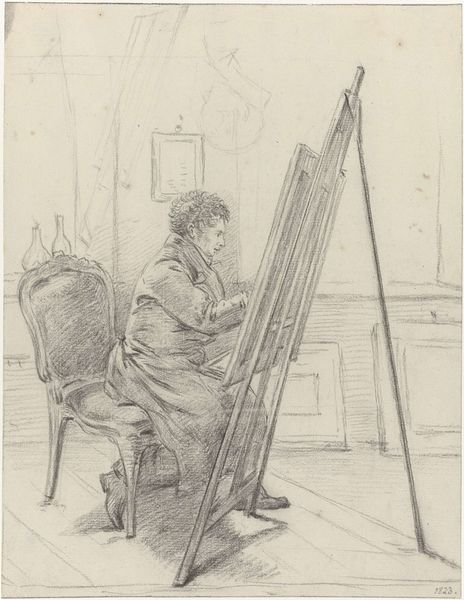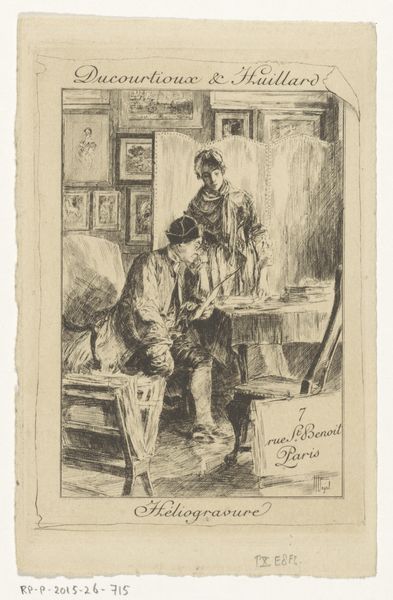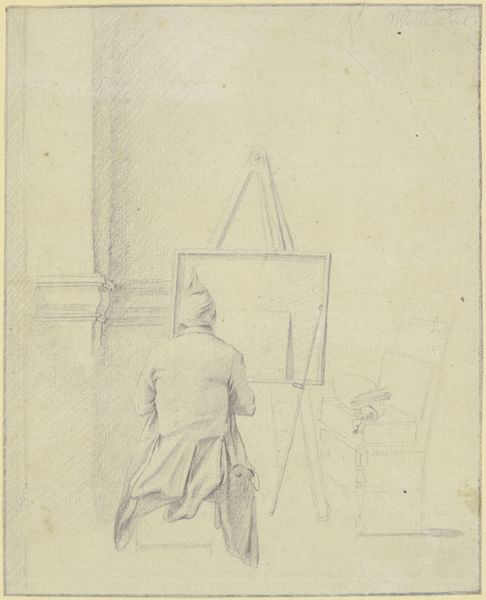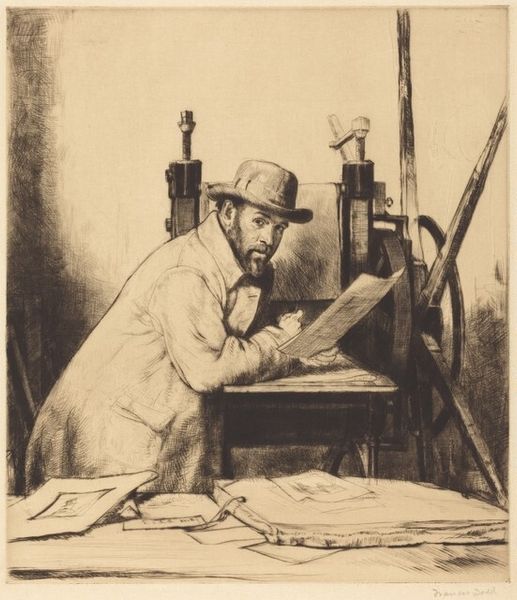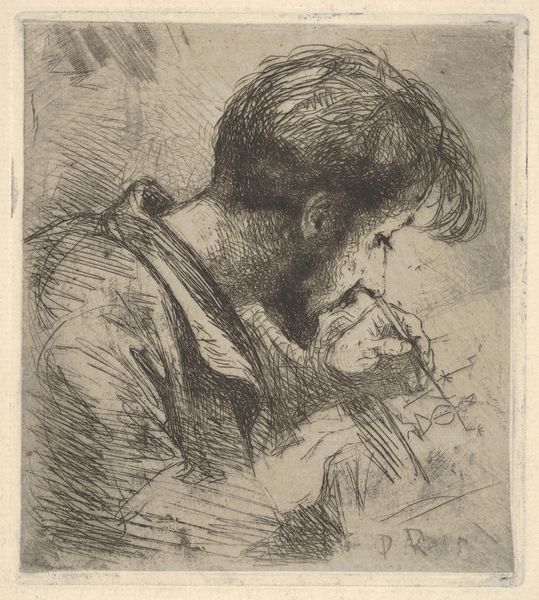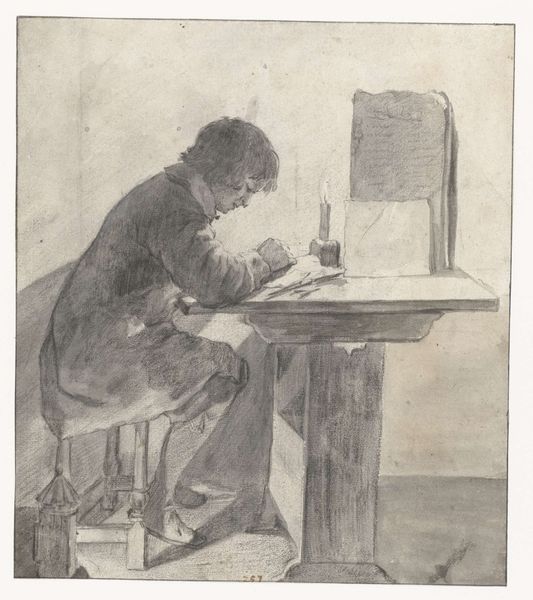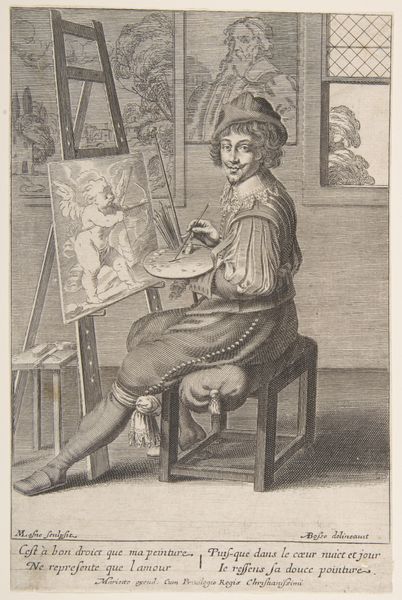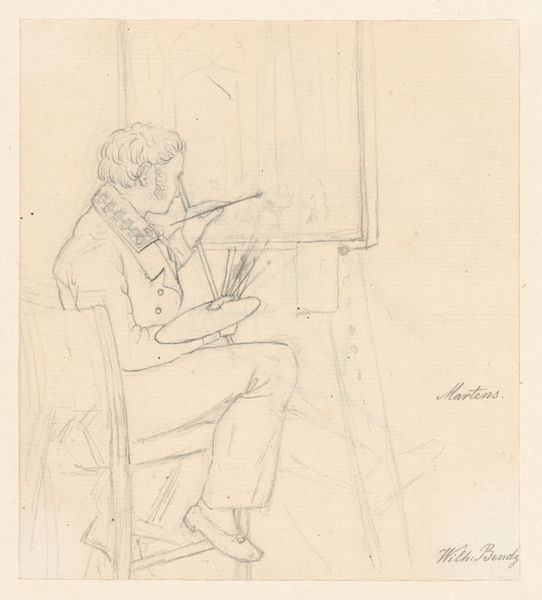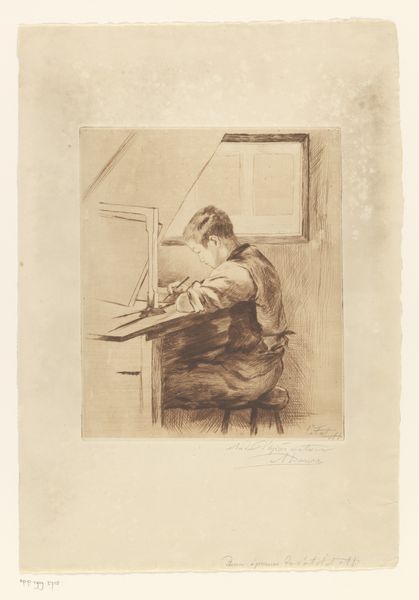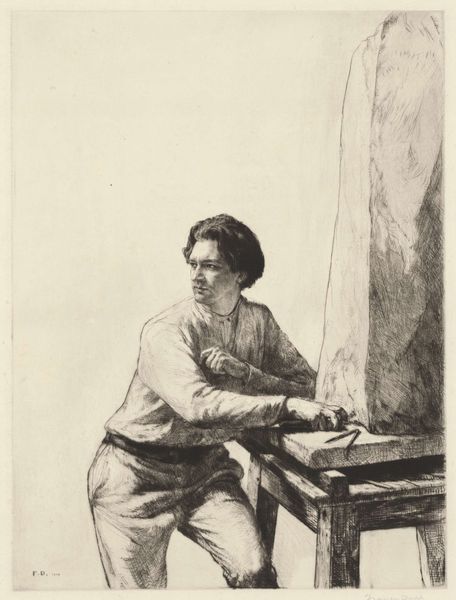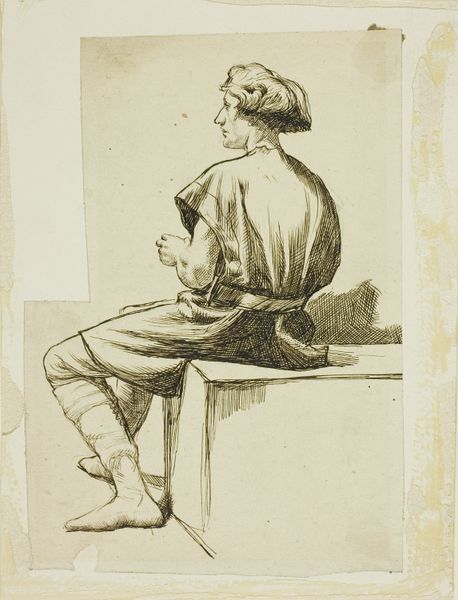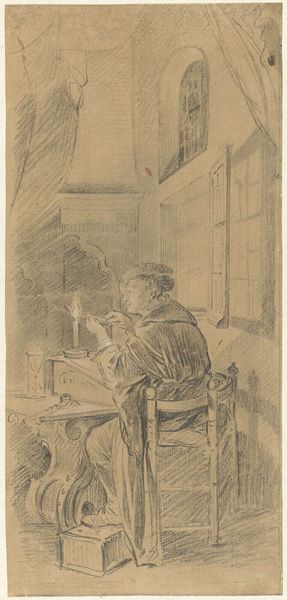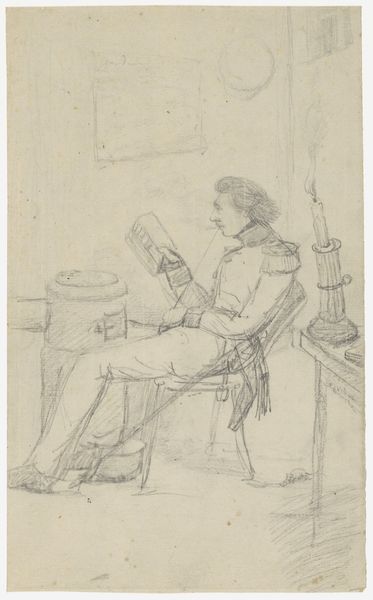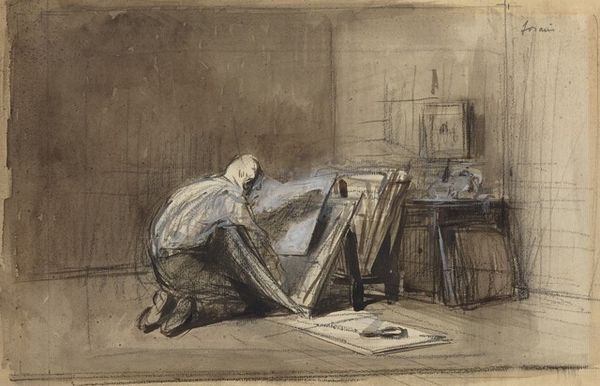
drawing, pencil, chalk
#
portrait
#
drawing
#
child
#
pencil drawing
#
pencil
#
chalk
#
portrait drawing
#
genre-painting
#
academic-art
#
realism
Copyright: Public Domain
Editor: We're looking at "Boy Sketching" by François Bonvin, made in 1856, with pencil and chalk. It strikes me as a very intimate scene, seeing this young artist so focused. What can you tell me about how it was made and why it resonates? Curator: Well, let’s consider Bonvin’s process. He uses chalk and pencil, readily available materials. It emphasizes the accessibility of art making. Note how the lines are not particularly refined, almost rough. Why do you think Bonvin chose this approach? Editor: Perhaps to capture the immediacy of the moment, the act of learning? It's almost as if we're seeing the production of art as labor. Curator: Precisely. It’s important to understand the economic circumstances of the time. Materials impacted artistic decisions and accessibility. Academic art traditionally prized oil and complex methods; this work challenges that ideal with accessible, unassuming materials, reflecting Bonvin's roots and a shift towards depicting everyday subjects with honesty. The depiction of labour is interesting. Look at the labour depicted. Do you think it speaks of something that goes beyond? Editor: It does highlight how art making itself is work, something available, accessible to everyone... Curator: ...indeed, perhaps Bonvin, using these accessible materials and focusing on such everyday topics wanted to democratize it... it is definitely very telling of social values at that time. Editor: This has given me a whole new perspective on how materials and subject matter intersect with social context, opening up who gets to participate in art making and representation! Curator: Yes, examining art through a materialist lens reveals so much more about not only how, but also why, art is made the way it is and what impact that had on audiences.
Comments
No comments
Be the first to comment and join the conversation on the ultimate creative platform.
